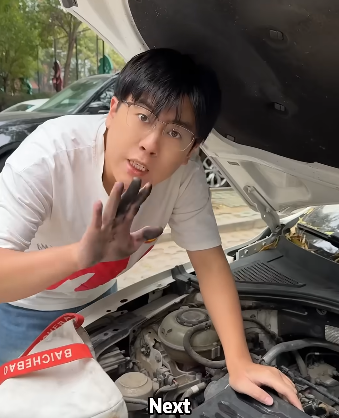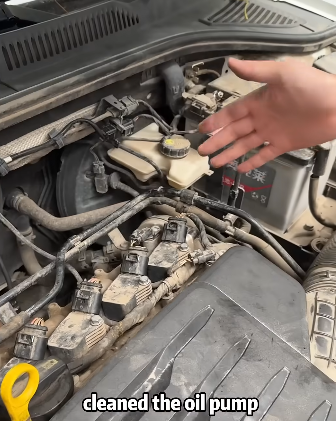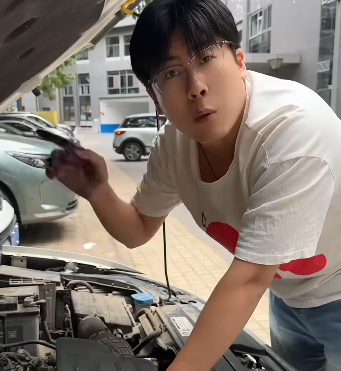
Car engine jitter and increased carbon deposits are common issues that can significantly affect your vehicle’s performance, fuel efficiency, and longevity. If your car engine starts shaking or running unevenly and you notice more exhaust smoke or reduced power, it’s a sign that carbon buildup might be taking its toll. Fortunately, these problems can be resolved and even prevented with proper maintenance and the right techniques. In this article, we will explore what causes engine jitter and carbon deposits, how to solve them, and what steps you can take to keep your engine running smoothly.
Understanding Engine Jitter and Carbon Deposits
Engine jitter, also known as engine shaking or misfiring, happens when one or more of the engine’s cylinders fail to fire properly. This can lead to uneven power delivery, rough idling, and even stalling in severe cases. Common symptoms include vibrations, poor acceleration, engine knocking, and a check engine light.
Carbon deposits are formed from the incomplete combustion of fuel. Over time, unburnt hydrocarbons and other residues accumulate in key engine parts, such as the intake valves, combustion chamber, fuel injectors, and spark plugs. This buildup interferes with proper air-fuel mixing, leading to poor engine performance and contributing to jitter.

Common Causes
Before addressing solutions, it’s important to understand the typical causes of jitter and carbon buildup:
- Low-quality fuel – Fuel with poor detergency or too much ethanol can leave more residue in the engine.
- Short trips – Engines that rarely reach optimal operating temperature are more likely to develop carbon deposits.
- Worn spark plugs – Faulty or old spark plugs can cause misfiring, leading to jitter.
- Dirty fuel injectors – Clogged or leaking injectors result in uneven fuel delivery.
- PCV valve malfunction – A faulty positive crankcase ventilation valve may increase oil vapor and carbon in the intake system.
- Air-fuel imbalance – A lean or rich mixture can increase unburnt fuel and carbon residue.
Step-by-Step Solutions
Here’s how to diagnose and solve engine jitter and excessive carbon deposits:
1. Diagnose the Problem
Start by scanning your vehicle’s computer for error codes using an OBD-II scanner. Misfire codes (P0300 to P0308) and fuel system codes (P0171, P0174) can help you pinpoint the issue. A qualified mechanic can also perform a cylinder balance test or check fuel injector performance.
2. Replace or Clean Spark Plugs
Old, worn, or fouled spark plugs are often the primary cause of jitter. If the plugs are covered in carbon or oil residue, replace them with high-quality, manufacturer-recommended spark plugs. In some cases, you can clean lightly fouled plugs, but replacement is usually better.
Tip: Always check the gap on new spark plugs to ensure proper ignition.

3. Clean the Fuel Injectors
Fuel injectors that are partially clogged can cause poor spray patterns and uneven combustion, contributing to both jitter and carbon buildup. You can:
- Use a fuel injector cleaning additive in your gas tank (every 5,000–10,000 km).
- Have the injectors professionally cleaned via ultrasonic methods for severe buildup.
4. Perform an Engine Carbon Cleaning
For deeper carbon deposits, consider an engine decarbonization process. Several methods exist:
- Chemical intake cleaning: A technician sprays a decarbonizing solution into the intake manifold while the engine runs. This helps dissolve deposits on valves and in the combustion chamber.
- Walnut blasting: Crushed walnut shells are blasted into the intake system (with valves closed) to scrub off carbon. This is especially effective for direct injection engines.
- Hydrogen engine cleaning: Some workshops use a hydrogen-based gas injected into the air intake, which burns off carbon as the engine runs.
5. Use High-Quality Fuel and Additives
Use top-tier gasoline that contains effective detergents. These fuels help reduce the formation of carbon deposits and clean existing buildup gradually. If your region lacks high-detergency fuels, consider adding a top-quality fuel system cleaner like Techron or Sea Foam once every few months.

6. Replace the PCV Valve
A faulty PCV valve can allow oil vapor into the intake system, leading to excessive carbon deposits. It’s a relatively inexpensive part to replace and can make a big difference.
7. Clean or Replace the Air Filter
A dirty air filter restricts airflow, leading to a rich air-fuel mixture that contributes to carbon buildup. Inspect and replace the air filter as needed—typically every 10,000–15,000 km.
8. Keep the Engine at Optimal Temperature
Take your car on longer drives occasionally to let the engine heat up properly. Engines that run below operating temperature don’t burn off fuel completely, which accelerates carbon buildup.
9. Regular Oil Changes
Old engine oil can contribute to carbon deposits. Stick to the manufacturer’s oil change schedule and always use the recommended grade and specification. Synthetic oils often leave fewer deposits and can be more effective in protecting modern engines.
10. Consider ECU Recalibration (Advanced)
In some cases, a poorly tuned ECU (engine control unit) can cause inefficient fuel combustion, leading to both jitter and deposits. A professional tuner or authorized dealer can reflash or update the ECU to improve combustion efficiency.

Preventive Measures
Once you’ve resolved the issue, take steps to prevent it from returning:
- Use premium fuel and regular fuel system cleaners.
- Avoid excessive idling and short trips.
- Change spark plugs and filters on schedule.
- Clean intake valves every 50,000–80,000 km (especially in direct-injection engines).
- Warm up your car gently—don’t rev a cold engine.
- Service your vehicle regularly and don’t ignore early warning signs.
When to Seek Professional Help
If you’ve tried all of the above and the problem persists, it’s time to bring your car to a professional. Advanced diagnostic tools can help uncover less obvious causes such as:
- Faulty ignition coils or control modules
- Vacuum leaks
- Exhaust gas recirculation (EGR) valve malfunction
- Cylinder compression issues
Don’t delay fixing a jittery engine—it can lead to severe damage like catalytic converter failure or engine knocking.
Conclusion
Engine jitter and carbon deposits are frustrating but manageable problems. With consistent maintenance, proper fuel, and cleaning procedures, you can restore smooth performance and avoid long-term damage. Your engine is like the heart of your vehicle—take care of it, and it will serve you well for many kilometers to come. Whether you choose to tackle these issues yourself or with the help of a professional, the key is prompt action and preventive care.



